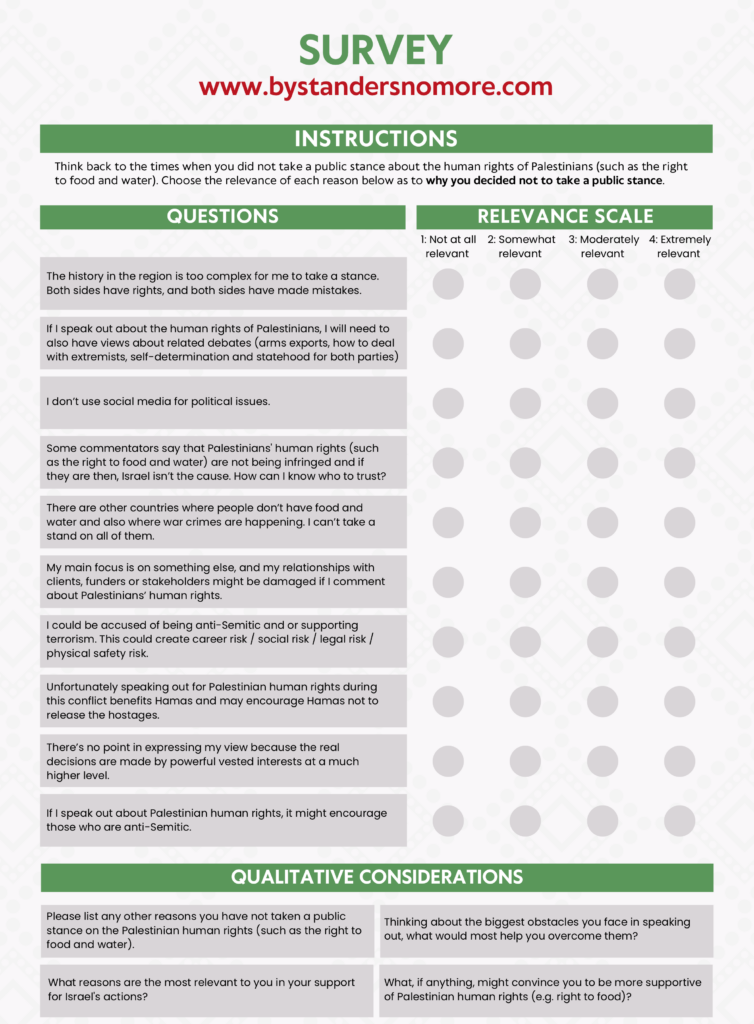
In 2024, nearly 250 people completed our anonymous survey about the barriers preventing bystanders from speaking up about universal human rights for Palestinians.
We discovered that the 3 biggest obstacles to taking action are fear of not knowing enough, fear of being called antisemitic, and feeling helpless against unresponsive power holders and structures.
By moving citizens of conscience step by step from bystanding to showing solidarity with Palestinians, we can better collectively shift the positions of politicians and mainstream media.
In the summer of 2024, Bystanders No More hosted a deep dive on our survey methodology and results with Freedom Advocacy Network. The presentation slides are now available to the public.
“I realized my silence was part of the problem.”
– Survey respondent